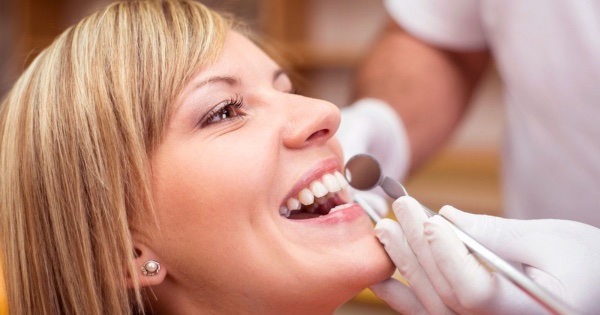Taking care of your teeth and engaging in good oral care includes brushing two times a day, flossing daily, and taking regular visits to your dental professional for cleanings every six months. After having a professional dental cleaning, you have a refreshed feeling as you glide your tongue over the just-cleaned teeth. Your entire mouth feels rejuvenated.

While teeth cleaning is a quick and relatively painless procedure, you may experience some discomfort afterwards. Your gums may be sore and irritated and your teeth may be more sensitive than normal. Why is that? At Sninski & Schmitt Family Dentistry, we take our patients’ comfort seriously. In that effort, as well as keeping you informed, this article explains the reasons why you may have some dental pains after having your teeth cleaned.
What Causes Tooth Sensitivity?
One of the biggest reasons why individuals have discomfort after having their teeth cleaned is because they have general tooth sensitivity. Several factors can cause teeth to be sensitive, such as worn enamel, exposed roots, cavities, and cracks. Additionally, teeth get sensitive when the gums have pulled back, or receded, and are exposing the underlying root of the tooth. Many times, tooth sensitivity can be a primary reason your teeth feel uncomfortable after a cleaning. When the dentin (the layer beneath your enamel) becomes exposed, your teeth will be sensitive to cold or hot temperatures. Most of the time, sensitivity comes from the gums pulling away from the teeth.
Other Causes of Gum Soreness
Here are three other reasons why your gums can be sore after having your teeth cleaned.
Gum Disease – Besides having tooth sensitivity due to gum recession, if you have gingivitis or gum disease you will more than likely experience swelling and bleeding after a dental cleaning.
Tubules and Nerves – Your teeth are covered in hundreds of pores called tubules, and inside the tubules are the nerves of the teeth. When the tubules are covered with plaque and tartar, both they and the nerves are blocked. The tubules are opened and the nerves are exposed during a cleaning by the dental hygienist .
Toothpaste Barrier – If you have sensitive teeth from gum recession, you may use a special toothpaste that blocks the tubules and protects the exposed nerves, helping with the sensitivity. During a cleaning, the barrier created from the toothpaste is scrubbed off and the nerves are exposed again.
The Process of Dental Cleaning
A professional cleaning requires probing and scraping to remove plaque and tartar that you can’t remove by brushing. Plaque is a sticky film that coats teeth and contains bacteria. Tartar, which is hardened plaque, forms when plaque is not removed on a regular basis. In order to perform a great cleaning, the dental hygienist reaches spots that your toothbrush can’t hit and uses more force than you do during regular brushing. After the process, you can feel discomfort around your teeth and gums, especially when you have tooth sensitivity. If your gums are inflamed or if you have tooth decay and other symptoms of oral disease that are causing tooth sensitivity, then you may be more likely to feel irritation, some soreness, and even experience swollen and bleeding gums. These symptoms can last as long as a week afterwards.
What to Do After Having a Dental Cleaning
If you are experiencing discomfort and pain after a cleaning, your oral care provider can prescribe an antibiotic or mouth rinse to manage pain and circumvent any possible infections. You can also use home remedies like salt water rinse, cold compresses, and clove oil applications to ease the symptoms.
People wonder how long they should wait after a dental appointment before eating and drinking. See our article “How Long Should I Wait to Eat or Drink After a Dental Procedure” if you are curious and would like more information. When you have soreness and discomfort after having your teeth professionally cleaned, you can engage in practices that aid in the sensitivity.
Here are some tips to help relieve those symptoms.
- Avoid drinks that can aggravate the sensitivity:
- Coffee and tea
- Alcohol
- Fruit juices
- Sugary sodas
- Cold or hot beverages
- Avoid whitening treatments such as whitening toothpaste, whitening strips, kits, and gels until after the sensitivity is gone
- Avoid these foods:
- Cold
- Crunchy
- Sticky
- Acidic
- Spicy
- Foods that are acceptable to eat after cleaning:
- Soft foods like yogurt, mashed potatoes, applesauce, hummus, goat cheese
- Soup
- Boiled eggs
Contact Sninski & Schmitt Family Dentistry for Dental Cleanings and More
Our team of dental professionals are ready to provide you with cleanings and exams that will assist in your oral health. Contact us today to make an appointment no matter what your concerns are. Call us at our Holly Springs dentist office at 919-600-6262 and our Cary, NC dentist office at 919-467-2203 or fill out our contact form to schedule an appointment.

